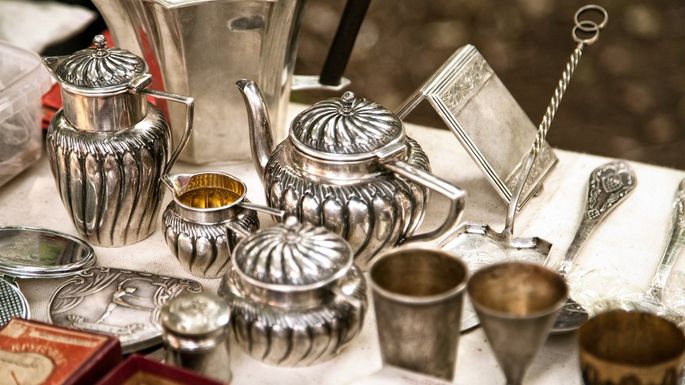Dealing with a family member’s death can be a double cruelty. There is the emotional loss. Then, that’s often followed by the monumental task of dealing with the deceased’s estate—you might have to figure out how to sell their home and we at JONES HOMES have dealt with estate sales for over a quarter of a century but you also have to sort through any property or possessions left behind—especially if there’s no will.
Given this is a hard time, it’s understandable that many people in this situation make mistakes. In an effort to get you through this process with minimal pain and suffering, here are the pitfalls to watch out for—and smarter ways to handle them.
1. Going through possessions piece by piece
People tend to start by sorting through each and every item they encounter as they go through the house, says Jacqui Denny, co-founder and chief development officer of estate sale marketplace Everything but the House. But this approach easily becomes a huge drain on time. “That’s how you end up spending four hours looking through paperwork in one drawer,” Denny points out.
What to do instead: If you want to avoid burnout, she recommends a simple sorting method. Mark four boxes with personal correspondence, photographs, medical papers, and legal documents. Go through the house looking for just those items and place them in their respective bins. Now you’ve removed an entire layer of items from the house, possibly the most important things. You can sort through each box later and decide what to keep or let go.
2. Undervaluing items you aren’t familiar with
Some people will carefully collect the silverware and then drag the fishing equipment to the curb. But some flies are worth tens of thousands of dollars. Who knew? Don’t assume that stuff is worthless because some hobby or style of art just isn’t your thing.
What to do instead: Talk with an appraiser before going through the estate to make sure you aren’t overlooking something rare or valuable.
3. Overvaluing items you like
Denny says she sees this happen a lot: When we like something, we tend to value it more than the market does. For example, a costume jewelry fanatic may think an entire collection is uniformly valuable. But that’s not always so.
“A vintage Miriam Haskell rhinestone brooch can bring hundreds of dollars,” she says. “But the typical, unsigned rhinestone brooch of the same vintage will sell for $35 to $50.”
What to do instead: Manage your expectations! And again, work with an appraiser to find the true value of items.
4. Overlooking the attic and basement
Maybe your parents came from more humble origins and you doubt they’ve collected anything worth a lot of money. You’d be surprised, Denny says. She recalls a client who assumed his mother didn’t have anything worth selling. But it turns out she left behind a 17th-century Korean bodhisattva statue in the attic, which later sold for $47,000.
What to do instead: Don’t neglect the attic and basement. Denny says they’re where the most valuable items are usually found.
5. Letting your vintage-loving friends sort and assess the estate for free
Hey, you have friends who love vintage items and are volunteering to sort through your parents’ estate. That’s better than hiring someone, right? Unless they’re experts, perhaps not.
“What if they donate something you end up seeing on ‘Antiques Roadshow’?” Denny asks.
What to do instead: Thank your friends and let them help you with other tasks. Most estate sale companies will do a free consultation, so you might as well tap their expertise just in case. It pays to have someone knowledgeable about the vetting process.
6. Selling to dealers rather than collectors
Most people consider selling first to dealers, but remember this: A jeweler will pay less for your jewelry than an ordinary consumer who just loves it. A jeweler wants to make a profit; a consumer just wants that lovely piece you have.
What to do instead: If you can, sell to collectors rather than dealers.
“End buyers don’t need to make a profit,” Denny says, “so they are willing to pay more.” The same goes with coins, stamps, and other collectibles.
7. Not dealing with debts
We’ve gone over the profitable elements of an estate. But remember, an estate includes debts as well.
According to the Federal Trade Commission, in the U.S., family members of the deceased are not responsible for paying the deceased’s debts.
(That’s in most cases.) Debts should be paid from the deceased’s estate. If there’s not enough in the estate to cover the debt, the remainder goes unpaid. However, there are some conditions when family members may be responsible: if they co-signed an obligation, are a spouse of the deceased, or are legally responsible for handling the estate and haven’t complied with laws.
What to do instead: Be proactive in following up on any debts the deceased left behind. Make sure obligations are met according to the law. You may need to hire a lawyer. You can also contact your state attorney general’s office if you need help.

